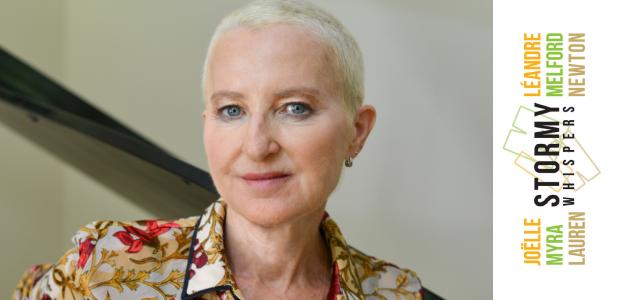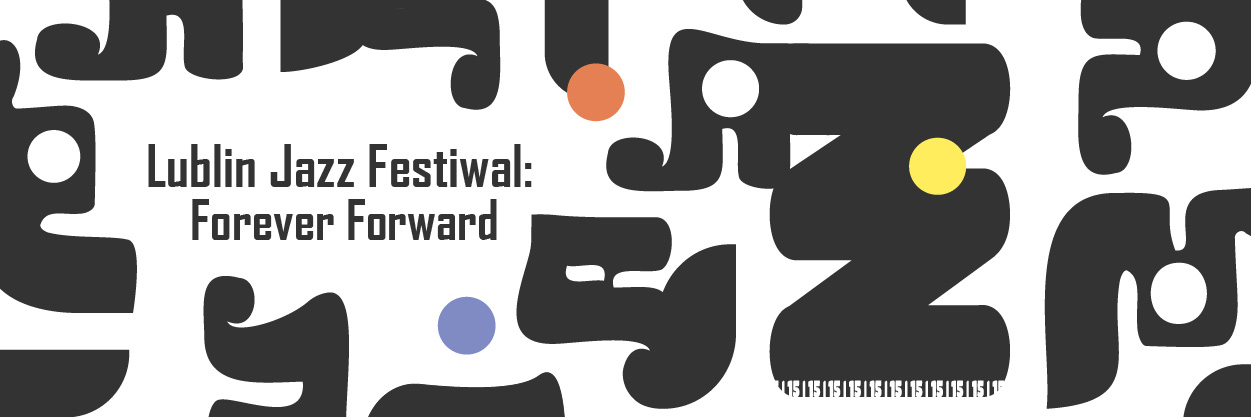Myra Melford: no one can teach you how to be you

Passion, sense of humor and positive energy. All those good emotions hide in every sentence of American pianist - Myra Melford. In this interview, Myra told me about her approach to improvisation, women on a jazz scene and the music, which inspire her in everyday life.
Your last CD „Stormy Whispers” was recorded during Ad Libitum Festival in Poland. The motto of that edition sounded “Women Alarm!”. In my opinion, unfortunately women are still under-hired as jazz musicians. Do you feel that during last years there’s been a change in disproportions between man and woman in jazz world?
MM: I loved the title of that festival, “Women Alarm!” I think things have changed over the 30+ years I’ve been playing this music – I see more young women coming into the scene and getting recognition and opportunities. BUT, it’s still not where it should be! And so festivals like Ad Libitum Women Alarm – which feature women musicians are still so important. We need to encourage more young women and girls - to let them know they are welcome and valued in this music.
Did you ever experience some kind of underestimation because you are a woman in a jazz world?
MM: Overall, I feel I’ve been very fortunate to be able to make this music my career and my life. And that’s come from the encouragement, support and mentorship of many other musicians – both men and women. But, yes, I have encountered what it is often an unconscious bias towards women musicians – where someone looks at your appearance before just listening to the music.

“Stormy Whispers” formula is very similar to your trio with Joëlle Léandre and Nicole Mitchell. Except of obvious personal and sound’s aspects, what is the difference between playing with vocalist and instrumentalist?
MM: This was my first time to play with Lauren Newton, and I enjoyed it so much! Whenever you encounter someone new, you have to listen and feel their energy – to learn how they express themselves and how you can best complement and interact with that. I don’t think it’s so much about the difference between instrumentalist and vocalist, as who we are as individual musicians coming together to make something that reflects who all of us are.
How your cooperation with Joëlle Léandre has began? What have you gain from this contact?
MM: I first met and played with Joelle in Oakland, California in 2004 or 5. I had just moved to California from New York to teach at the University of California in Berkeley, and Joelle was teaching at Mills College during that time. I loved her energy, passion, sense of humor and beautiful playing from the first time I heard her – we got to perform a couple of times, and there was something in her playing that felt very natural and like a kindred spirit. I’ve now gotten to play with her many more times in the last few years in our trio with Nicole Mitchell – and I always feel as though I’m learning from her – she’s such a masterful bassist and improviser.
Your music is based on improvisation. Could you tell us about the process of how does the improvisation transform itself into composition?
MM: Improvisation really is composition – it’s just that it’s happening in the moment of performing rather than before the performance. It’s the element of the unknown that I love so much – you don’t know what the composition will be until it reveals itself as you play it, and you have to listen and respond 100% to really be engaged in the music.

How does the pandemic of COVID-19 and social-political atmosphere of recent weeks in U.S. affects your every day life as a musician?
MM: Of course, as for everyone else, my life has changed so much. I used to be traveling and performing with and for other people in person all the time. Now, I’m staying home in Berkeley and playing solo rather than with others. But, I’m trying to make the most of this time to study and practice and compose new music, but I do miss the social part of performing – the communication and communion we have each other as performers and listeners. There’s so much nourishment in that.
You are also known for your educational path. You are a professor in Berkeley. From your experience, what is a typical problem of young musicians to struggle? Do you see some tendency in their style of thinking about music and composition?
MM: Yes, as I mentioned before, I’m a professor at UC Berkeley (not to be confused with the Berklee College of Music in Boston!). I think it’s the same for all of us – the goal is to discover and hone our own voice as a musician. When we’re younger and students – we also have to learn how to play our instrument and study how other people have played our instrument and what they’ve been able to do to express themselves. But eventually, we need to find our own way – no one can teach you how to be you. But they can encourage and guide you based on their own experience.
Recently, it was very popular to share with 10 albums that “greatly influenced your taste in music”. Could you please write some of albums, that influenced your taste and style in music?
MM: I did that on FB earlier in the pandemic – this will give you an idea of some of the different musics that have inspired or influenced me during my life. The albums I chose were:
- Cecil Taylor – Air Above Mountains
- Otis Spann – Walking the Blues and Otis Spann is the Blues
- Witold Lutoslawski - Concerto for Piano and Orchestra
- James P. Johnson – Carolina Shout and The Original James P. Johnson
- Ornette Coleman – This is Our Music and the Town Hall Concert
- Aretha Franklin – I Never Loved a Man the Way I Love You and Lady Soul
- Art Ensemble of Chicago – Full Force and Nice Guys
- Kishori Amonkar – Ragas Shuddh Kalyan and Suha
- Oumou Sangare – oumou. and Woratan
- The Beatles – Rubber Soul and the White Album
You’re into east culture and spiritual activities such as meditation, yoga. How it affects your music and creativity?MM: Practicing yoga and meditation helps me to be more present in the moment – and that’s what improvised music is all about!
- Aby wysyłać odpowiedzi, należy się zalogować.







